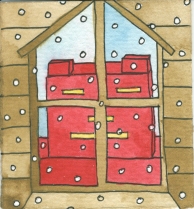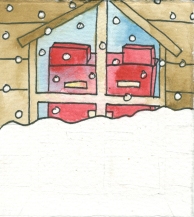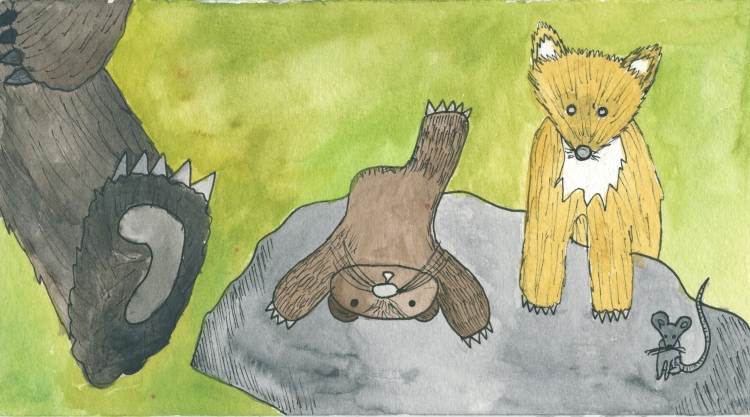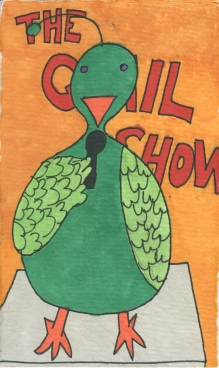Good! Now, theory studies the nature of ends and means. Our end is victory. Our means are tactics, which will vary depending on what kind of victory we seek. Some of the things we must consider when choosing our means are terrain – where you are, who lives there, whether there are mountains, rivers, swamps, forests, etc. – time of day, and weather, although only fog will really make a difference most of the time.
Yes, Bear?
– What about if it’s raining?
Rain might make you a bit uncomfortable, but it will not change what you are doing.
– What if it’s snowing out?
Snow might slow you down a bit, but it will not make a big difference either. In any case, the original — Yes, Bear?
– What if it’s snowing really, really hard, like it’s a huge blizzard and you can’t see and the snow covers the windows of your house?
I suppose I will have to concede, Bear, that that might make a difference, or at least cause us to postpone our actions. OK?
– Yes, Sir.
Where was I? Oh yes. We use tactical victories as our means toward the end of peace. So our strategy consists of planned battles, engagements, and winning them brings us closer to peace. For a good strategy, we will learn these possible means from experience. If we look to history as our guide, we are less likely to get too fanciful, too far from reality, in our thinking. Yes, Marten?
– I thought you said before that it’s good to use our imaginations.
That is a good point, Marten. It is good to use your imagination, to be creative, but it’s best if we base our creativity on understanding what has happened and what it possible. If the only plans you can make are impossible to carry out, it won’t do any good. Does that make sense?
– I think so, Sir.
Theory should only study means as far as they will matter in practice. For example, it is important to know the range and effectiveness of a weapon – how far it can strike and what kind of damage it can do – but not how it is made. Yes, Boar?
– But doesn’t how it’s made effect how it works?
Yes, but the only thing that’s important to you as commander is that it does work. If you know that it works, you personally don’t have to know why.
This is an important point. It is important to simplify the knowledge of the commander. One who is too obsessed with details will not be a good commander. In the past, people thought this meant that only genius could make a good commander, and no theory could help, but it’s like the expression, ‘Don’t throw the baby out with the bathwater.’
You don’t have to get rid of everything in order to rid yourself of the unnecessary things. It’s not that a commander needs to know no details, just that he needs to know only those things which directly matter in the conduct of the war.
Your responsibilities in war will determine what knowledge you need, and much is up to judgment, not study. You don’t need to be an historian, but know history. You don’t need to be a pundit, but know politics. You don’t need to be a mechanic, but know how far your machinery can go under given conditions. You must absorb this knowledge, so it is a part of you, so that when the time comes to make a decision, you aren’t considering lists of memorized facts, but can make the decision instantly.
So, class, we have split the conduct of war into two fields, tactics and strategy. Tactics have mainly to do with material factors – men, movements, means – and since strategy deals with ends that will lead to peace, the possible factors are endless, so strategy will present the greatest challenge, it will be the hardest to understand in a theory of war. Strategy is mainly the chief commander’s job. For theory, we can concentrate on material and psychological factors – means, and feelings, responses, and such. If this theory can give a commander enough insights, it will smooth her progress and ensure that she never has to abandon her own convictions, beliefs.








